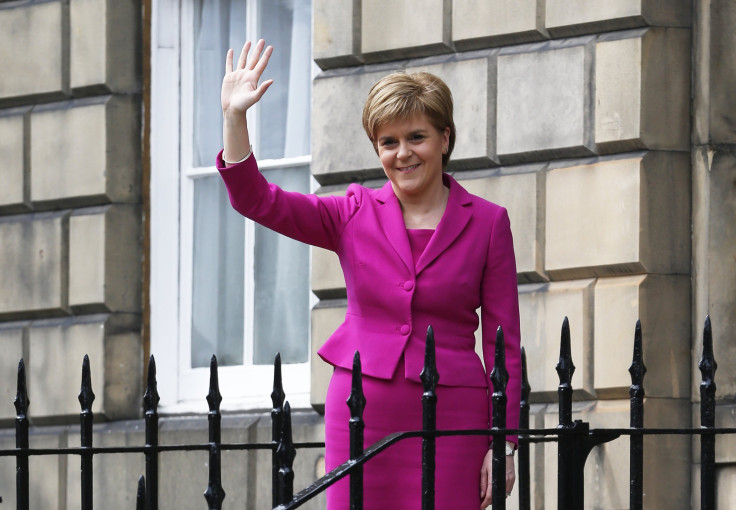Brexit Vote 2016: Scotland Likely To Vote To Remain In European Union, Says First Minister Nicola Sturgeon

Scotland’s first minister is “reasonably confident” that Scottish voters will choose to remain in the European Union when they head to the polls June 23. Scotland has almost 4 million registered voters, and they could help tip the balance for the remain-in-the-EU, or "Remain," vote.
“At this stage I am reasonably confident that there will [be] a significant vote in Scotland to stay in the European Union, but…I have a job to do to make sure that is the case,” Nicola Sturgeon said at a news conference Wednesday.
Sturgeon was re-elected as first minister last week, representing the Scottish National Party. The U.K. Independence Party did not win any seats in the Scottish parliament during last week’s election, and the five parties in the Scottish parliament are all in support of Britain remaining in the EU.
Voters will head to the polls June 23 to cast their ballots over the so-called Brexit issue. A Survation poll conducted for the Daily Record and released Monday reported 76 percent of Scottish voters would back staying in the EU. The poll surveyed 1,024 voters between May 1 and 2.
“We are taking nothing for granted; the argument must be won in Scotland as elsewhere in the U.K., but the potentially decisive impact of Scottish votes is one factor that we believe will mobilize people to back our positive campaign and vote Remain on 23 June,” John Edward, a senior campaign spokesman for Scotland Stronger in Europe, told the Scotsman.
Sturgeon and other Scottish politicians have stressed the positive economic benefits of remaining in the 28-member EU. British Prime Minister David Cameron said Monday that the Brexit vote was a choice between war and peace.
A clear message from former US Secretaries of State and Defence in today's Times: Britain is stronger in Europe. https://t.co/V4bmZaTucE
— David Cameron (@David_Cameron) May 10, 2016
“The European Union has helped reconcile countries which were at each others’ throats for decades,” Cameron said. “Britain has a fundamental national interest in maintaining common purpose in Europe to avoid future conflict between European countries.”
While politicians have turned to increasingly charged statements when making their arguments for and against a British exit, Sturgeon has urged politicians to campaign in a positive way.
“One of the things that a campaign could do is encourage people to think about the opportunities that are on offer rather than cowering in a corner feeling fearful, and I hope that [the campaign] will do that,” she said.
© Copyright IBTimes 2025. All rights reserved.





















